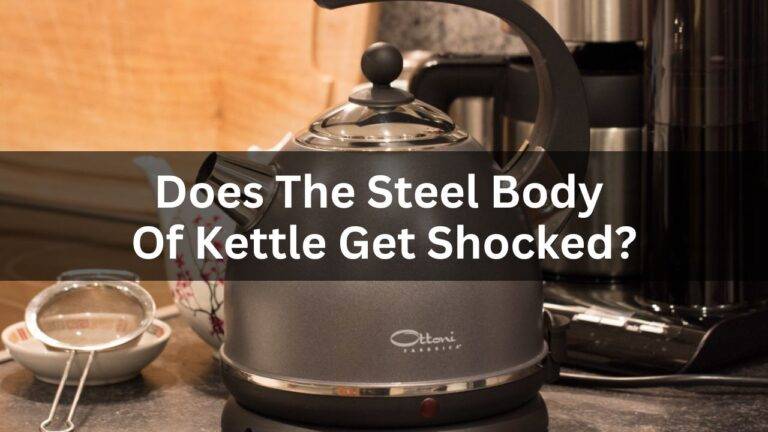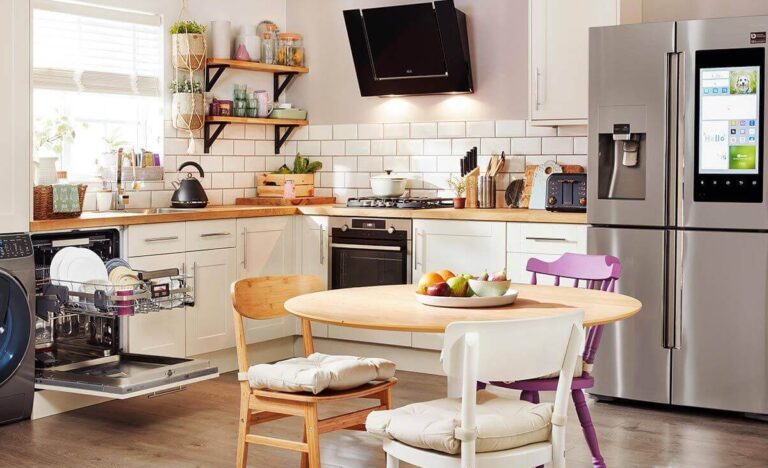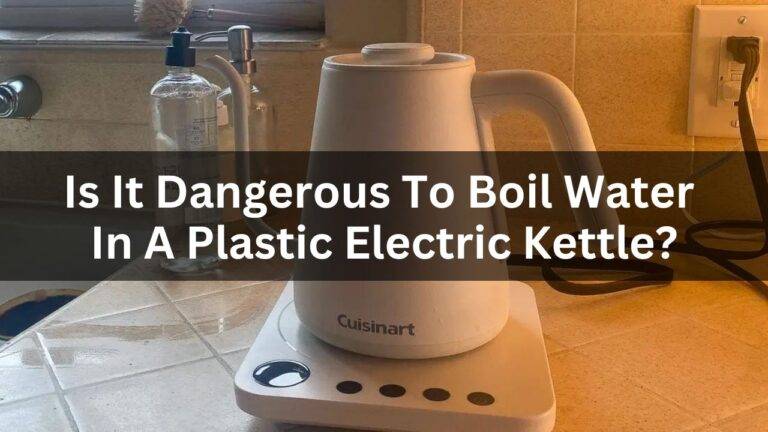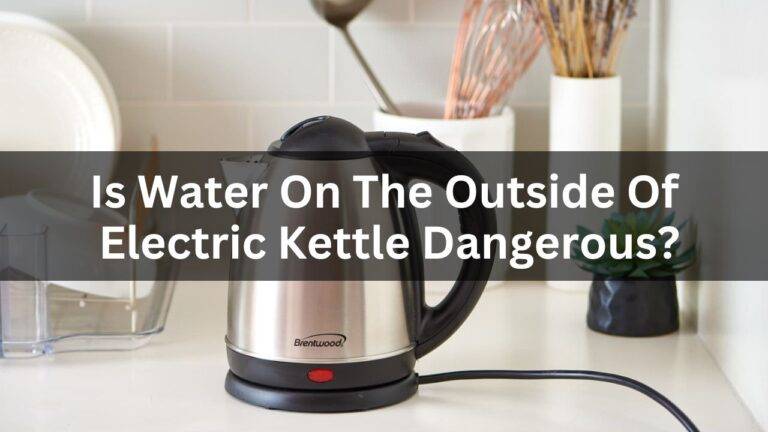Why Is My Kettle Making A Buzzing Sound?
We feel a peaceful environment around us in the morning time. Then someone around our house makes coffee or tea from a kettle which creates noise.
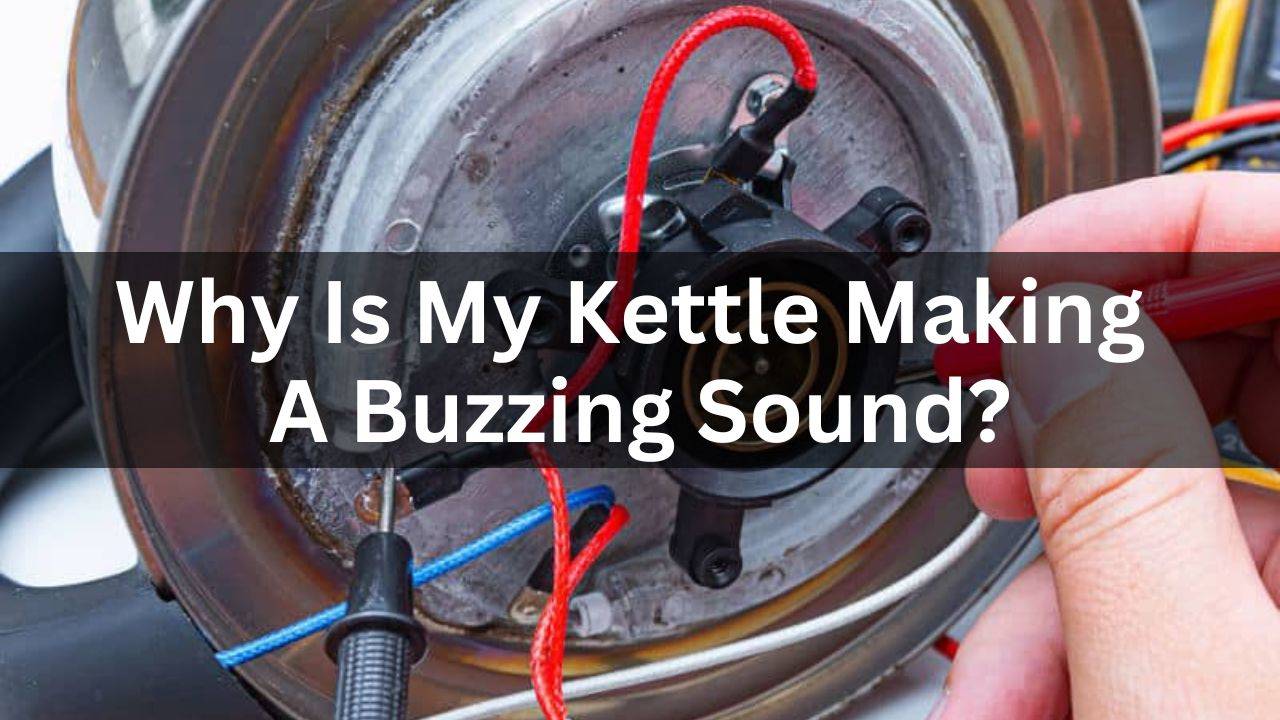
We feel a peaceful environment around us in the morning time. Then someone around our house makes coffee or tea from a kettle which creates noise.
In this way, we feel a disturbance in enjoying our company. This noise can also be harmful to our health and will also have a bad effect on our ears.
The water boils so fast in the kettle due to the presence of heating elements. During boiling, when it expands. The bubbles are produced which creates noise. These all connect to the countertop which amplifies it.
This article tells you the main reasons why the kettle makes noise and also helps you to make the kettle quiet. The electric kettles have different parts and all have different functions. We also discuss which part of the kettle creates sound.
Contents
Can we keep the Kettle Making quiet?
The Kettle Making sound can create disturbance in the household environment. There is no best way to quiet the kettle but you can try your best to make the kettle quiet.
There are four ways in which you use one for the prevention of kettle sound.
Using tea cosy:
The tea cosy id work as cover on kettle which make the tea or water warm for some time. The tea is cosy and is present in many designs and different colours which give a unique look to our kitchen.
The cossies of kettles are different for different kettles. When you want to buy a cosy kettle. Then keep in mind that the cosy is thick and has insulation.
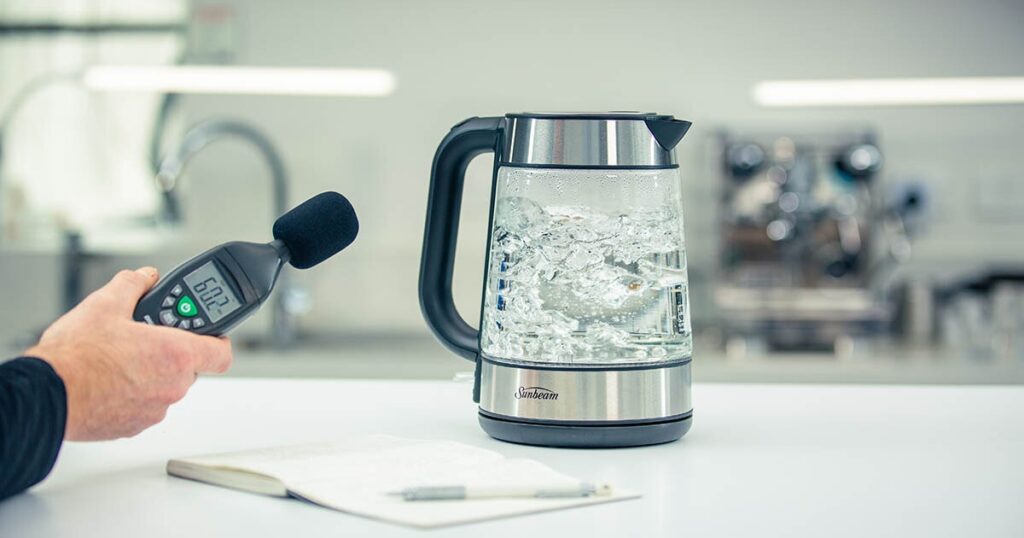
Rubberized undercoating spray:
The rubberized undercoating spray is mostly used in cars to reduce noise and make prevention from rust.
In the same way, the rubberized undercoating spray provided protection to the kettle from dust particles which causes rust and also helps to keep the kettle quiet.
Extra padding:
When we use the kettle. First place the thick padding material beneath the kettle which prevents the kettle from making a noise.
Somewhere specialized mets are used to reduce or dead of sound of the kettle. This is really beneficial to keep your environment safe from noise.
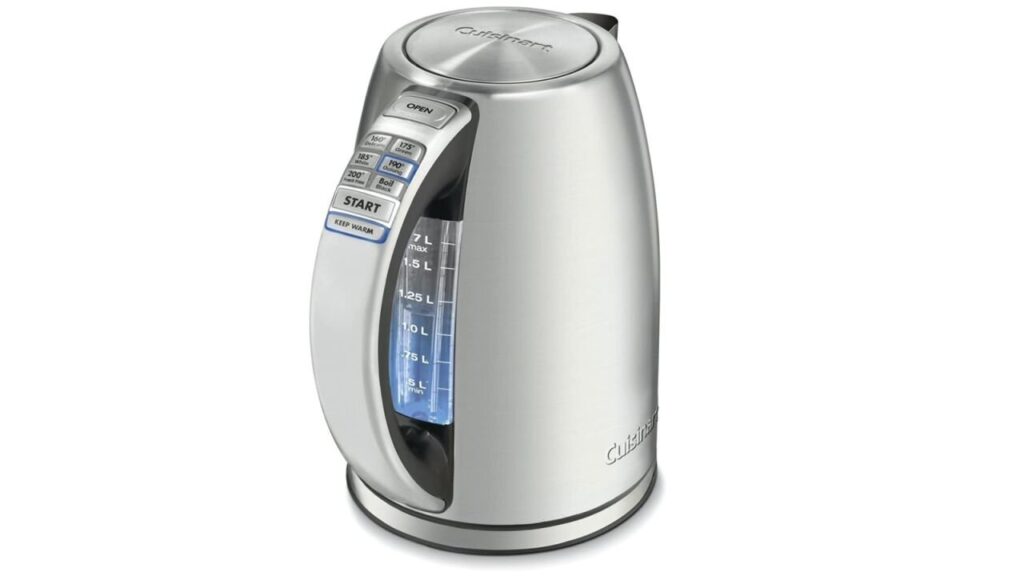
Limescale solution:
Some people complain that their kettles don’t make noise at the start. But now they make irritated and harmful sounds.[1]
The reason is the presence of limescale in the kettle that makes the kettle noisy. The removal of limescale from the kettle is called de-scaling.
The process of removing limestone from the kettle is done by methods which are vinegar rinse, citric acid rinse and other methods like that.
Also Read: Is It Dangerous To Use A Rusty Kettle?
Which kettle makes more noise?
The 79 dB was the normal sound of the kettle. the maximum sound created by the kettle was 95 dB which irritated and created a disturbance.
The electrical kettle is noisier When the water boils in it. The bubbles produced during the boiling process reach at top counter of kettles where they create noise.
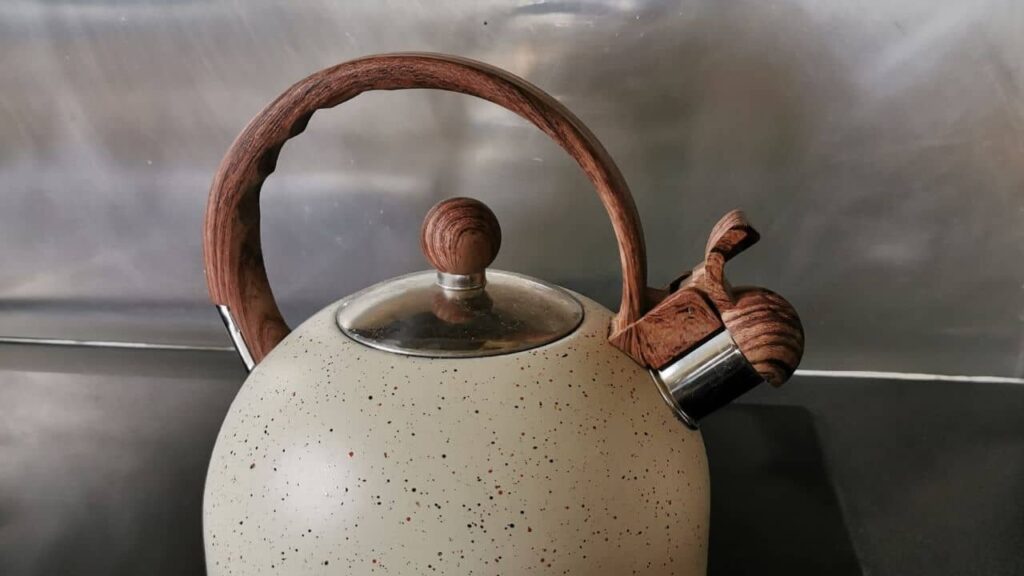
The electrical kettle will be shut down automatically when the water reaches a certain height above. Some kettles shut down when the water is ready.
The sound of the kettle is lower than the human voice which is about 60 to 65 db. The vacuum also creates noise similar to kettle which may not be heard by our ears.
Also Read: Do You Use Bottled Water To Boil The Kettle?
Side effects of the kettle:
The noise of a kettle may also be harmful to our health. Noasua, vomiting, diarrhoea and hearing loss are the side effects of a noisy kettle.
The sound of the kettle is 95 dB which can cause hearing loss for human beings who can’t be able enough to barred that high quantity of sound.
You should be aware of the side effects of plastic kettles. Research on plastic kettles shows that the boiling water in a kettle can realise 10 million micro-plastic particles in one litre of water.
The water boil in the kettle is also used for the fed up of babies which can be harmful and can have a bad impact on their health.
Also Read: What Should You Not Do With An Electric Kettle?
At what point do we need to change the kettle before it starts making noise?
When we see the kettle is looking old and the colour of the kettle is disappearing day by day. At that time we need to replace the kettle.
The other reason which gives us the idea now is the kettle has been replaced with a new one is the sound of the kettle.
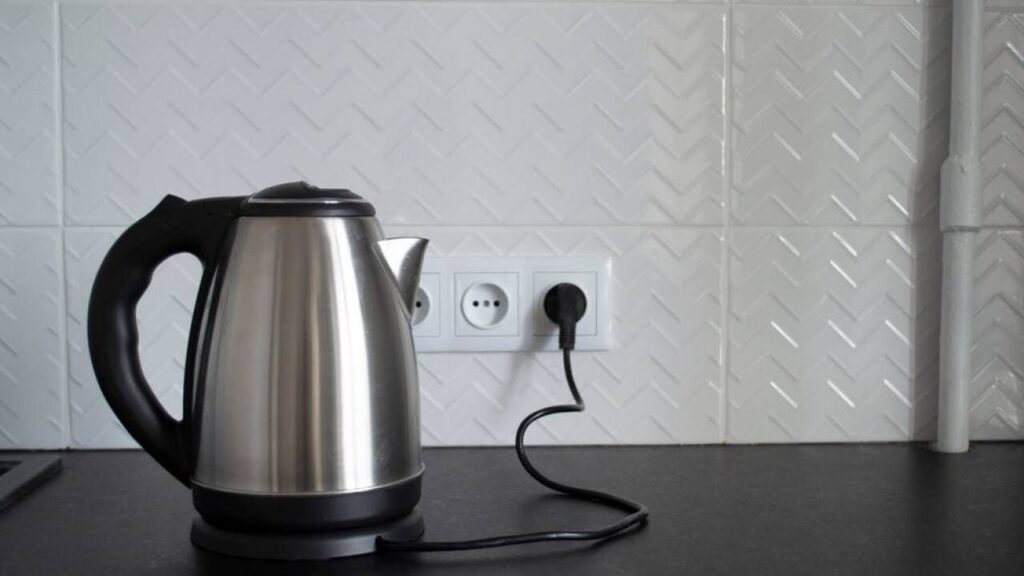
In another way, if you want to buy a new style of kettle to make your kitchen look unique. More addition, if you are bored with the old style of kettle then you replace the kettle.
The unique things and equipment make your kitchen look stylish. Your kitchen looks bad when you place the old and spoiled equipment just as discoloured and old kettle.[1]
Also Read: Is It Dangerous To Boil Water In A Plastic Electric Kettle?
Conclusion:
The kettle creates a sound when the water boils in it. The boiling water produces bubbles which touch the top counter of kettles create sound and sometimes convert into steam.
Different methods are used to keep the kettle quiet in which tea is cosy, rubberized undercoating spray and extra padding on the base surface are involved.
The presence of limescale in the kettle also makes the kettle noisy. It can be removed from the kettle by using cleaning methods such as vinegar rinse, lemon juice rinse etc.
The instructions are required to use the kettle properly. If you don’t follow instructions your kettle spoils and rusts easily.
The kettle creates noise of 95 dB which has a bad impact on human health. The human loses the sense of hearing due to kettle noise.
FAQs:
Q: Which makes the kettle damaged?
A: The most common thing which makes the kettle damage is limescale builds up. This builds up mostly when you leave water in the kettle and do not clean it properly.
Q: What is the most common issue that happens in the kettle?
A: The kettle is also damaged due to a fault of the lid, leaks or power failure. But You need not worry, this damaged kettle is repaired. Repairing is better than replacing it with a new one.
Q: What do we call the white residue in the kettle?
A: The white residue found in the kettle is calcium. These present dissolved minerals and don’t cause any bad impact on the kettle.
Q: Which kettle is safe for use?
A: The kettles which are free of plastic and toxic materials are stainless steel, ceramic and glass. The safest kettle is stainless steel. it doesn’t expose the users to harmful chemicals.
Q: Why Is My Kettle Making a Buzzing Sound?
A: The buzzing sound from your kettle is likely caused by mineral deposits or scale buildup on the heating element. Regular descaling using a vinegar solution can help eliminate the noise.
Q: Can a Buzzing Sound Indicate a Fault in My Kettle?
A: While a buzzing sound is often due to scale buildup, it can also signal a faulty thermostat or heating element. If descaling doesn’t resolve the issue, it’s advisable to consult the manufacturer or seek professional assistance for further diagnosis and repair.
Q: Can the buzzing sound be a sign of a potential electrical problem?
A: Yes, a buzzing sound may indicate electrical issues within the kettle. To ensure safety, unplug the kettle and have it inspected by a professional if you suspect electrical problems.
Q: What causes my kettle to make a buzzing sound during operation?
A: A buzzing sound in your kettle may be attributed to the heating element or electrical components. It could indicate normal operation, but if the noise is unusually loud or persistent, further investigation may be necessary.
Q: Can the type of water used affect the buzzing sound in the kettle?
A: While water type is not a direct cause of buzzing, mineral deposits from hard water can accumulate and impact the heating element. Regular descaling may help reduce potential noise caused by mineral buildup.
Q: Does the buzzing sound indicate a problem with the kettle?
A: Not necessarily. A low-level buzzing can be a normal part of the heating process. However, if the noise is loud or persistent, it’s recommended to inspect the kettle for any visible issues or contact the manufacturer.
Q: How can I reduce or eliminate the buzzing sound from my kettle?
A: Ensure the kettle is on a flat, stable surface, and check for any loose parts. If the buzzing persists, consult the manufacturer’s guidelines for troubleshooting or consider professional assistance.
Q: Are there different types of buzzing sounds, and what do they signify?
A: Different buzzing sounds can be caused by variations in heating element design, electrical components, or loose parts. Unusual or loud buzzing may warrant closer inspection.
Q: Should I be concerned if my kettle consistently makes a buzzing noise?
A: If the buzzing is within normal levels and the kettle functions properly, there’s usually no cause for concern. However, sudden changes or excessively loud buzzing may indicate an issue that requires attention.
Q: Can hard water contribute to the buzzing noise in my kettle?
A: While hard water itself may not cause buzzing, mineral deposits from hard water can accumulate on the heating element, potentially impacting its performance. Regular descaling may help prevent this issue.
Q: How often should I descale my kettle to reduce buzzing noises?
A: Regular descaling is recommended based on the hardness of your water. In hard water areas, descale your kettle every few weeks to prevent mineral buildup and maintain optimal performance.
Q: If the buzzing sound persists despite maintenance, what should I do?
A: If the buzzing remains bothersome after regular maintenance, refer to the manufacturer’s guidelines for troubleshooting or consider reaching out for professional assistance to ensure the kettle is functioning properly.
Q:What are the potential reasons behind the sudden buzzing or humming noise coming from my kettle, and how can I identify whether it indicates a malfunction or a normal operational sound?
A: Explore various factors that could contribute to a buzzing sound in a kettle, providing insights into distinguishing between normal operational sounds and potential malfunctions.
Q: Are there specific types of water or impurities that could lead to a buzzing sound in a kettle, and how can users ensure that the water quality is not causing any issues with the appliance?
A: Discuss the influence of water quality on Kettle Making performance and provide tips on maintaining water quality to prevent potential buzzing sounds.
Article You Might Be Interested:
Should You Leave Water In A Kettle Overnight?
Can I Have A Kettle In My University Room?
Why Are Kettles Not Efficient?
Why Circuit Breaker Tripping When Using Kettle?
Is It Safe To Leave Tea Kettle Plugged In?
Is Boiling Tea Bags In An Electric Kettle A Good Or Bad Idea?
Does The Steel Body Of A Kettle Get Shocked?

